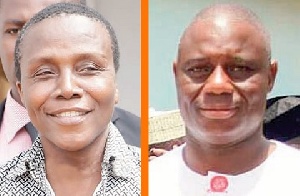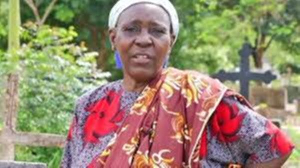Education in the then Gold Coast and now Ghana has gone through a remarkable amount of time and Policies.
These policies emanated to the status of Ghana today. Numerous successes can be attributed to some of the policies.
However, a grave success of these educational policies is much more realized during the period before, during and immediately after independence of Ghana.
For instance, the 1925 educational ordinance by Gordon Guggisberg had many principles that transformed the educational system of Ghana. One of the principles was to provide a secondary school with the standard that will qualify secondary school students to enter university. He (Guggisberg) implemented the school – (Achimota Senior Secondary School). That school now called Achimota college that was established to bring out students that can enter into university has produced a lot of prominent personalities for the country, including some of the former presidents of Ghana. This was a very purposeful and successful principle under the policy.
However, I think the most prominent principle of the 1925 educational ordinance that needed to be sustained was that “the courses/subjects in every school should consider the health, welfare and industry of the locality”. Yet it seems this principle is the least successful, from 1925 till today.
Another inviolable educational policy was the Accelerated Development Plan (ADP) of 1951 by Dr. Kwame Nkrumah with the main objective of helping to develop a balanced system working towards universal primary education as rapidly as consideration of finances and teacher training allowed, but maintaining at the same time proportionate facilities for further education for those most fitted to receive it. The policy therefore also involved steps to increase the number of the teacher training colleges by ten. According to (Graham, 1976), in 1951, there were twenty (20) teacher training colleges in the Gold Coast, but by the time of the attainment of Ghana’s political independence in 1957, the number has risen to thirty. This happened as a result of the implementation of the Accelerated Development Plan (ADP) of 1951.
Nkrumah saw education as the key to the country’s economic development. He, therefore, set two main objectives for the development of the educational sector. The first was to increase the rate of literacy in the country by providing more facilities for education. The second was to use the schools to train people who would provide the human resource needs of the country. The ADP policy also achieved its objectives.
Following the above policies among many others, successive governments of Ghana have placed much faith in education as a major instrument for rapid social and economic development. With this faith, the education sector has experienced increased access and participation at all levels rapidly until today.
But as education in Ghana still strives higher, the following questions need careful and critical answers:
What kind of capabilities/know-how is the current educational system offering to the students/graduates, What jobs are there that require such capabilities, What will be the contribution of such skills and jobs to be taken by graduates to the social and economic development of Ghana?
In short, is our educational curriculum taking care of our economic needs? Millions of graduates are lollygagging/loitering aimlessly because of unemployment; what they learn from school is either virtually worthless in the Ghanaian economy or the job they can do is already so much choked with human resource.
Education is not matching industry needs because our curriculum is so much traditionally tied to the curriculum of the colonial days, meanwhile, the economic and educational needs of Ghana at that time and that of this time have a vast difference.
To exhume the educational challenges and to help develop a balanced system working towards purposeful education as Ghanaians desire, vocational and technical education must be reestablished, but creating at the same time proportionate factories through which Ghanaians would produce and consume what they need. This would boost the economy through education.
For instance, if a factory is attached to a school, taking into consideration the courses run by the school, the raw materials near the school and the market for the products the factory will produce would help Ghanaians to produce and consume what they need. The goods and services needed by Ghanaians supposed to determine the syllabuses of schools in Ghana. Otherwise, a myriad of policies may be taken but if not in line with creating factories that would boost the industrialization of the country, we would seem to be cooking food that we cannot eat, thus We may churn-up graduates that cannot contribute to the development of our nation – (Worthless graduates). Meaning our educational system cannot feed our hunger.
If all the policies our leaders can make are evasive and not addressing the glaring need for creating employment through schools and graduates, then Ghana is in a Looming danger.
By: Naa Cosmas Naab
PHONE NO.: 0540491855 / 0205789092
EMAIL: naacosmasnaab@gmail.com
Opinions of Wednesday, 20 September 2017
Columnist: Naa Cosmas Naab



















